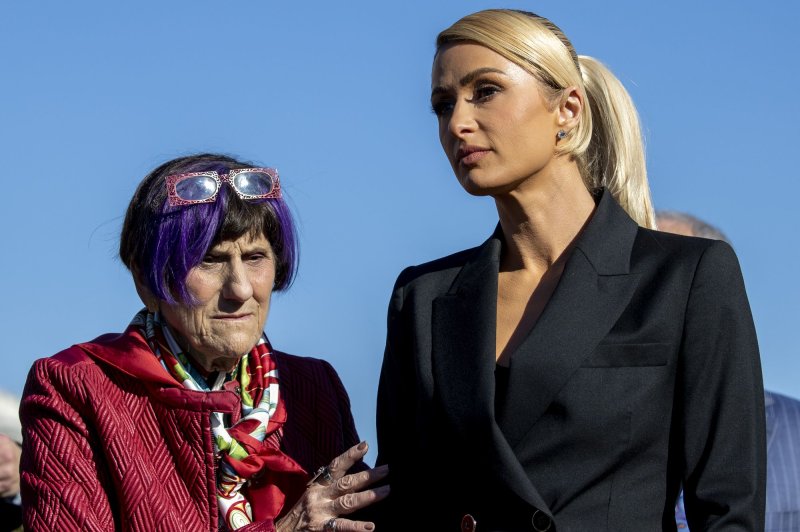By Cara Murez, HealthDay News

Researchers say an increase in cigarette sales during the COVID-19 pandemic may reflect people falling back on old habits or picking up new ones because of stress caused by the coronavirus. Photo by Free-Photos/Pixabay
As COVID-19 has surged throughout the United States for the past year and a half, some may have picked up an old bad habit or started a new one.
How do researchers know this? They discovered that cigarette sales jumped during the first 15 months of the pandemic, exceeding their own estimates by 14%.
It's not entirely clear whether that's because current smokers are smoking more, former smokers have restarted or new smokers have joined their ranks. Yet experts are concerned.
"The study provides indirect evidence of increased smoking," said study co-author Samuel Asare, a principal scientist with the American Cancer Society. "We don't directly show whether there was increased smoking. We know that there is a strong correlation between sales and consumption."
RELATED Vaping less likely to help smokers quit than giving up tobacco
For the study, the researchers compared cigarette sales from March 2020 to June 2021 with predicted sales based on the long-term declining trend before the pandemic, from January 2007 to February 2020, then adjusted for expected changes, including seasonality.
The investigators gathered data from the U.S. Department of the Treasury's Alcohol and Tobacco Tax and Trade Bureau.
Cigarette sales exceeded expected sales during all months after the onset of the pandemic.
ORAL FIXATION
RELATED Study: Nearly 1 in 5 high school kids uses trio of pot, vapes, cigarettes
Many reasons could have contributed to the increase, Asare said.
"Some of them are the stay-at-home orders," Asare said. "Remember, some people used to work in workplaces where we have smoking bans. Now that they're staying at home, they have their freedom to do whatever they want at home."
For others, smoking can be a strategy for coping with stress. Programs that provided aid to Americans during the pandemic may have led households to increase their spending, which could include increasing cigarette purchases for smokers, Asare said.
RELATED Study: Delay on graphic warning labels on cigarettes may have cost lives
Stockpiling of cigarettes early in the pandemic may also have had an impact on the sales numbers.
Further research would be needed to more firmly determine which of these contributed to the increases.
Researchers do know that smoking cessation programs experienced a sharp decline in requests for help.
"Participation in calls to quitline or cessation counseling declined drastically during the pandemic," Asare said. "The North American Quitline Consortium found a 27% decline in calls to the quitline in 2020 for cessation counseling compared to 2019," he added.
The apparent increase in smoking couldn't come at a more challenging time.
"There are a number of studies that have shown that smokers are more vulnerable to COVID-19-related complications compared to nonsmokers," Asare said.
What's needed now? Restoring calls for smoking cessation counseling and increasing tobacco control policies, Asare said.
"It is important to get back to a trend or to a level we had before the pandemic, so that whatever goals we have, we can actually achieve," Asare said.
The findings of the research report were published online Tuesday in the Annals of Internal Medicine.
Patricia Folan is director of the Center for Tobacco Control at Northwell Health in Great Neck, N.Y. She was not surprised to hear that cigarette sales had increased in these past months.
"During the pandemic, there have been many reports indicating increases in other substance use, as well as increases in mental distress, such as anxiety and depression, which are often triggers for relapse," said Folan, who was not involved in the study.
"After the attacks on 9/11, an increase in smoking and relapse to smoking was noted, particularly among first responders. Although very different situations, the stress felt in both instances may have contributed to increased smoking or relapse to smoking," Folan said.
Folan said the smoking cessation program she leads has seen an increase in enrollment during the pandemic.
As Asare suggested, Folan said patients reported smoking more while working remotely at home, without the smoke-free environment at their usual workplaces. They also reported relapsing due to feelings of stress, anxiety and isolation, Folan said.
"Health care providers should continue to ask patients about their tobacco use even if they have quit in the past and, if relapsed, counsel and refer them to the supportive services of a local program or state quitline," Folan said. "Explaining the connection between poor outcomes for smokers with COVID-19 may motivate patients to engage in quit attempts."More information
The U.S. Centers for Disease Control and Prevention offers resources to help you quit smoking.
Copyright © 2021 HealthDay. All rights reserved.

























